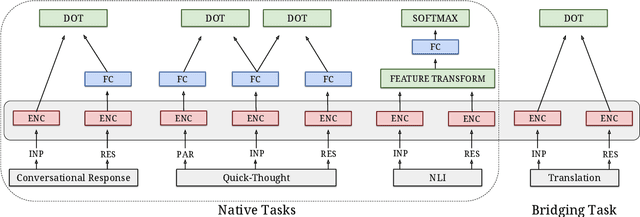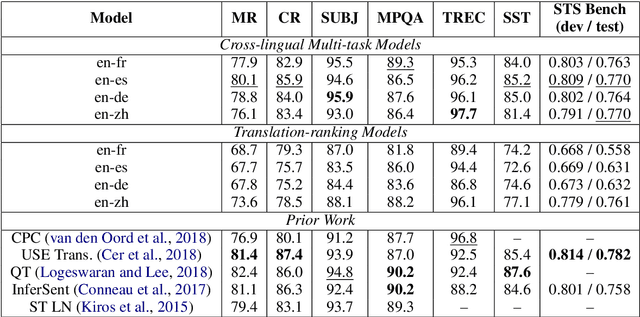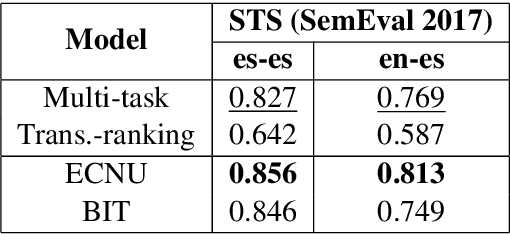Learning Cross-Lingual Sentence Representations via a Multi-task Dual-Encoder Model
Paper and Code
Oct 30, 2018



Neural language models have been shown to achieve an impressive level of performance on a number of language processing tasks. The majority of these models, however, are limited to producing predictions for only English texts due to limited amounts of labeled data available in other languages. One potential method for overcoming this issue is learning cross-lingual text representations that can be used to transfer the performance from training on English tasks to non-English tasks, despite little to no task-specific non-English data. In this paper, we explore a natural setup for learning cross-lingual sentence representations: the dual-encoder. We provide a comprehensive evaluation of our cross-lingual representations on a number of monolingual, cross-lingual, and zero-shot/few-shot learning tasks, and also give an analysis of different learned cross-lingual embedding spaces.
 Add to Chrome
Add to Chrome Add to Firefox
Add to Firefox Add to Edge
Add to Edge